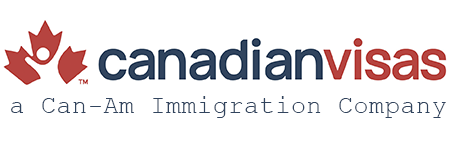Immigration, Citizenship and Refugees Canada (IRCC) has recently adjusted its guidelines for Intra-Company Transferees (ICTs), effective October 3. These changes aim to restrict the ease with which employers can secure work permits for their foreign employees under the International Mobility Program.
The revised guidelines impose stricter criteria for multinational corporations and require employees to possess specialized knowledge essential to their roles. This shift is part of IRCC’s broader strategy to reduce the number of temporary residents in Canada.
International Mobility Program: A Brief Overview
The International Mobility Program allows employers to utilize Intra-Company Transfers to obtain work permits for foreign nationals without undergoing a Labour Market Impact Assessment (LMIA). LMIA is a process designed to ensure that hiring foreign workers does not negatively impact the Canadian labor market.
Enhanced Requirements for Intra-Company Transfers
The updated guidance mandates that foreign enterprises seeking ICTs must qualify as established multinational corporations (MNCs). This means they must have revenue-generating operations in at least two countries before setting up in Canada.
Other notable changes include:
- Clarified Definition of “Specialized Knowledge”: IRCC has provided more specific guidance on assessing whether an applicant possesses specialized knowledge and whether a position requires such expertise.
- Eligibility Criteria for Foreign Nationals: The guidelines have clarified the eligibility criteria for foreign nationals applying for ICTs.
- Consolidated Instructions: The instructions for ICTs have been consolidated into a single page for easier reference.
IRCC has emphasized that ICTs should not be used as a means to transfer an enterprise’s general workforce to affiliated entities in Canada. The update also underscores the importance of officers including all relevant evidence for ICT applications within the Global Case Management System (GCMS).
Free Trade Agreements and International Mobility
IRCC has also updated staff documentation related to free trade agreements associated with the International Mobility Program, including:
- Canada–United States–Mexico Agreement
- Canada–Korea Free Trade Agreement
- Canada–Peru Free Trade Agreement
- Canada–Colombia Free Trade Agreement
- Canada–Chile Free Trade Agreement
- Canada–European Union: Comprehensive Economic and Trade Agreement
- Canada–United Kingdom Trade Continuity Agreement
- Comprehensive and Progressive Agreement for Trans-Pacific Partnership
The updates standardize the format of instructions for these agreements, integrating all guidance on assessing ICTs into the specific instructions for each FTA.
IRCC’s Ongoing Reforms
These program updates for ICTs align with IRCC’s broader initiative to scale back temporary resident programs. Immigration Minister Marc Miller aims to reduce the proportion of temporary residents in Canada’s population from 6.5% to 5% over the next three years.
In September, Miller announced measures to significantly reduce the number of study permits, post-graduation work permits (PGWPs), and spousal open work permits. The Temporary Foreign Worker Program (TFWP), which enables LMIA-based work permits, has also faced scrutiny. The government has suspended processing of the low-wage stream of the TFWP for areas with unemployment rates exceeding 6%.
The upcoming Levels Plan, to be released in November, will be the first to include targets for temporary residents. This plan outlines immigration targets for the following year and provisional targets for the subsequent two years.





0 Comments